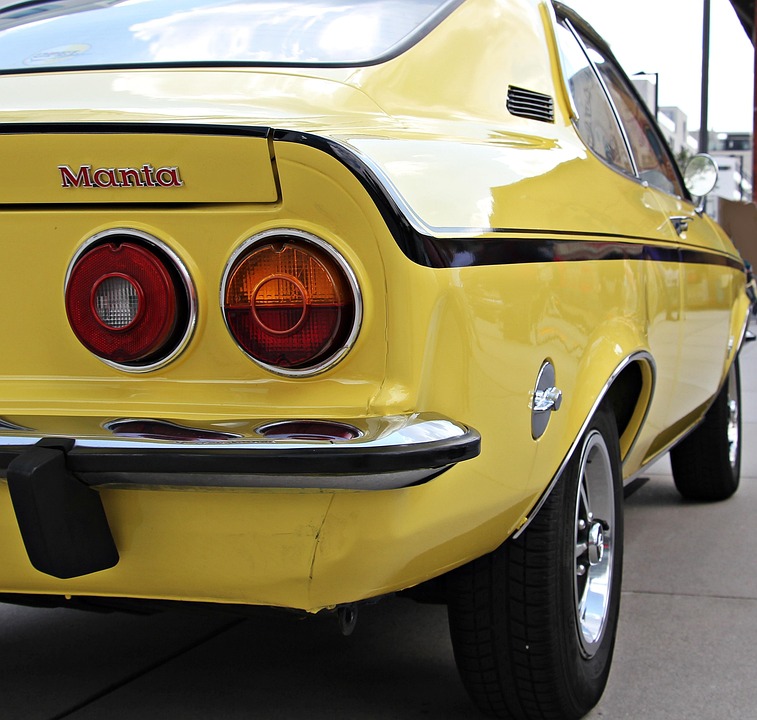Global Influence: How Local Car Brands are Making an Impact on the International Stage
Introduction
In recent years, the global automotive landscape has experienced significant shifts, primarily due to the rising influence of local car brands. Traditionally dominated by Western giants such as Ford, General Motors, and Volkswagen, the automotive industry is now witnessing a profound transformation. Local manufacturers, particularly from developing countries, are not only establishing a foothold in their domestic markets but are also compelling international players to rethink their strategies. This article delves deep into the dynamics of local car brands making an impact on the international stage, exploring their strategies, innovations, challenges, and future prospects.
The Rise of Local Brands
Local car brands have seen a meteoric rise over the past two decades. In markets like China, India, and Brazil, homegrown manufacturers have capitalized on burgeoning middle-class populations and their demand for affordable, reliable vehicles. Notably, companies like BYD, Geely, Tata Motors, and Mahindra have moved from initial struggles to global competitors. This transformation can be attributed to various factors:
-
Increased Production Capacity: Local brands have significantly ramped up production capabilities. Governments in countries like China and India have implemented supportive policies that encourage local manufacturing. For instance, the "Make in India" initiative has bolstered domestic automotive production, allowing companies like Tata Motors to expand their offerings significantly[^1].
-
Innovation and Technology: Many local brands have invested heavily in research and development, understanding that innovation is crucial for competing in the global market. For example, BYD has emerged as a leader in electric vehicle (EV) technology, revolutionizing the transportation sector in China and abroad[^2].
- Adaptation to Consumer Preferences: Local brands often possess a more intimate understanding of consumer preferences in their markets. This localized knowledge enables them to tailor vehicles to meet specific demands, such as fuel efficiency, affordability, and features adapted for local driving conditions.
Case Studies of Local Brands
BYD: A Beacon of Electric Vehicles
BYD (Build Your Dreams) has undoubtedly become a household name in the EV sector. Founded in 1995 as a battery manufacturer, BYD expanded into automotive production in 2003. Its strategy revolves around a comprehensive ecosystem of electric mobility that includes electric cars, buses, and even monorails[^3].
Expanding Internationally: BYD’s aggressive global expansion has seen it establish manufacturing plants in the United States, Brazil, and Hungary. The company’s electric buses are not only popular in China but are now gaining traction in cities like Los Angeles and London[^4].
Challenges: However, BYD faces stiff competition from established players like Tesla. As such, it continuously pushes technological boundaries, introducing innovations in battery technology and autonomous driving features[^5].
Mahindra & Mahindra: The Indian Contender
Mahindra & Mahindra has made substantial strides in the automotive sector, becoming a major player in the utility vehicle market in India. Its acquisition of the Korean automotive company SsangYong Motor and a strategic partnership with Mahindra Reva Electric Vehicles exemplify its ambition[^6].
Global Outreach: With a focus on sustainability, Mahindra is looking towards electric and hybrid vehicles. It has introduced the eVerito and introduced plans for electric versions of its popular SUVs[^7]. The company has also been making inroads into African and Latin American markets with its rugged and affordable vehicles, catering to the needs of consumers in these regions.
Strategic Partnerships: Understanding the value of alliances, Mahindra has entered into multiple partnerships, including with OEMs and technology companies, to boost its competitive edge and expedite its global ambitions[^8].
Geely: The Chinese Powerhouse
Geely’s growth trajectory is a testament to the potential of local brands in the international arena. Since its inception, Geely has pursued an aggressive growth strategy, acquiring notable brands like Volvo Cars and a stake in Daimler AG[^9].
Balancing Heritage and Innovation: Despite its rapid global expansion, Geely has remained committed to its roots. The company has invested significantly in R&D and has established a technological focus through Geely Technology Group, aiming to lead in smart vehicle technologies[^10].
Future Focus: Geely’s ambition is evident in its plans for electrification—a sector where it aims to rival not just domestic competitors but also global leaders[^11]. The company has recently unveiled a series of EVs under its Geometry brand, targeting eco-conscious consumers both domestically and internationally.
Strategies for Global Expansion
Innovation and Sustainability
To contend in the global market, local brands are increasingly focusing on sustainable practices. As consumers worldwide become more environmentally conscious, the push for EVs and greener technologies has become paramount. Brands like BYD and Mahindra are at the forefront of this shift, leveraging government incentives and consumer demand to innovate in electric mobility.
Competitive Pricing
Affordability is often a unique selling proposition for local car manufacturers. By minimizing production and operational costs, companies such as Tata Motors offer vehicles that deliver value without compromising on quality. This strategy not only appeals to domestic consumers but is also captivating international markets where cost-effectiveness is a priority.
Strategic Collaborations
Collaborative ventures are a key strategy for local brands seeking global exposure. Partnerships with established manufacturers can facilitate technology sharing, market access, and brand recognition. For instance, Geely’s acquisition of Volvo has allowed it access to advanced safety technologies, which have been integrated into its own vehicle models[^12].
Leveraging Digital Platforms
The rise of digital marketing and online sales platforms has enabled local brands to reach international consumers more efficiently. Brands are utilizing social media, e-commerce, and targeted advertising to build brand awareness and drive sales. Companies like Mahindra have embraced digital platforms to enhance customer engagement and streamline the buying process[^13].
Challenges Faced by Local Brands
Despite the opportunities available, local car brands must navigate a complex landscape marked by several challenges:
Regulatory Hurdles
Different countries have varying regulatory requirements concerning emissions, safety standards, and vehicle performance criteria. Local brands must invest significantly in compliance to gain entry into new markets[^14]. For instance, entering the European market requires adherence to stringent emissions regulations, which may necessitate additional investments in R&D.
Brand Recognition and Reputation
Global consumers often favor established brands due to their perceived reliability and quality. Local brands must invest in marketing efforts and leverage quality assurance mechanisms to build credibility on the international stage[^15].
Competition from Global Giants
With the automotive market being exceedingly competitive, local brands regularly face pressure from global giants who have extensive resources, marketing budgets, and established supply chains. This competition can make it difficult to capture market share in saturated environments[^16].
Global Supply Chain Constraints
Recent global disruptions, such as the COVID-19 pandemic, have highlighted vulnerabilities in supply chains, affecting production and distribution. Local brands seeking international markets must adapt their supply chain strategies to ensure resilience and flexibility[^17].
Future Prospects
As local car brands continue to gain momentum, their potential to reshape the global automotive landscape is undeniable. The focus on electric vehicles, sustainable practices, and technological innovation positions them favorably for future growth.
Electric and Autonomous Vehicles
The shift towards electrification is not just a trend but is expected to define the future of the automotive industry. With local brands like BYD and Mahindra making significant investments in EV technology and infrastructure, they are poised to capitalize on the demand for sustainable transportation[^18].
Entering New Markets
As local brands expand their geographical reach, untapped markets in Africa, Southeast Asia, and Latin America present significant opportunities. These markets often have less entrenched competition and a growing desire for affordable mobility solutions, which local brands are well-equipped to provide[^19].
Embracing Technological Advances
The integration of advanced technologies such as AI, IoT, and connected vehicles will be critical for local brands aiming to enhance the driving experience and optimize production processes. Collaborations with tech firms can expedite this technological evolution, enabling local brands to offer cutting-edge features[^20].
Conclusion
The automotive industry is undergoing one of its most transformative periods, driven by the growing influence of local car brands on the global stage. The ability to innovate, adapt to consumer preferences, and embrace sustainability will be crucial for these brands as they forge a path in this highly competitive landscape. As they continue to expand their reach, invest in technology, and overcome challenges, the future of local car brands promises to be impactful—offering a fascinating counterpoint to traditional automotive powers and reshaping the market dynamics for years to come.


























Add Comment